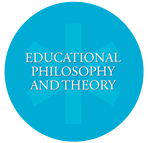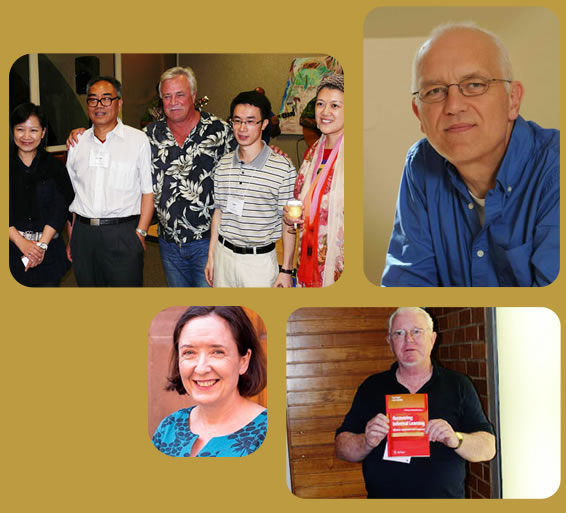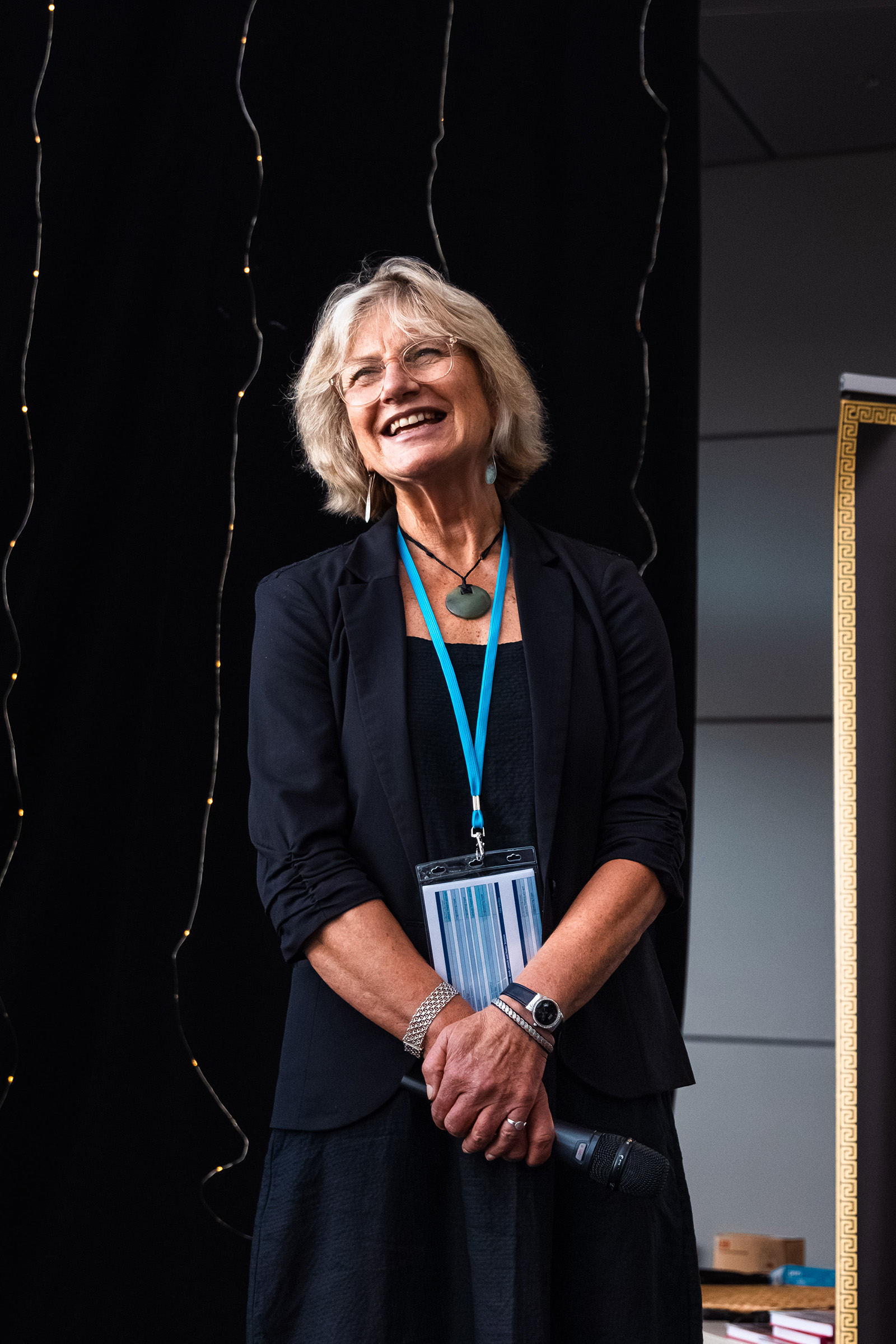Conference 2022
Conference Programme 2022
The most up to date programme will be on the App along with ways to connect with your colleagues and keep up to date with the Conference Programme.
All delegates have received information on how to access the App via iOS App or Google Play and have been provided with login information. If you need assistance with the App, please contact
Alternatively, the Conference Programme can be viewed via your web browser here.
Thursday 8 December
|
8:50 – 9:00
|
CONFERENCE OPENING |
||||
| 9:00 – 10:00 |
KEYNOTE John Lester |
||||
|
10:00 – 10:30 |
MORNING TEA |
||||
|
10:30 – 11:50 |
BREAKOUT PRESENTATIONS AND PANELS 5x Strands 4 Sessions – 20min each (15min presentation + 5min Q&A) |
||||
|
Strand 1 |
Strand 2 |
Strand 3 |
Strand 4 CHAIR: Daniella Forster |
Strand 5 CHAIR: Carl Mika |
|
|
10:30 |
PANEL
Philosophical Research Methodologies in Childhood Research Marek Tesar, Joanne Ailwood, Andrew Gibbons, Sonja Arndt |
PANEL
How is the critique of bio-power in education possible?
Hirotaka Sugita, Reiko Muroi, Koki Hiraishi, Tomoka Toraiwa |
Refining the Critical Eye in multicultural educational contexts - Paths to Knowledge-Based Teaching on Religion
Olof Franck, Peder Thalén |
Building Moral Identity through Character Education as Curriculum Safitri Ratri |
PESA: A tale of three conferences Andrew Madjar |
|
10:50 |
Liberal-secularism as a spiritual tradition: Foundations for a new educational-cultural approach
Arik Segev |
Humility versus the Desire to Throw Up Hands or Slam Down Fists Liz Jackson |
Towards Philosophical Autonomy in Visual Arts Curriculum Rah Kirsten |
||
|
11:10 |
(Virtual) Beyond multiculturalism: Exploring the concept of shared humanity as an educational response to a fragmented world Victor Ali, Gordon Tsui, Anna Asano-Uon, |
Intellectual virtues: application to tertiary and secondary education Mitch Parsell, Christopher Smith |
Reimagining ethic-ontologies of academic bodies: Plugging into vital matter through arts-based work Adele Nye, Daisy Pillay, Jennifer Charteris |
||
|
11:30 |
(Virtual) Rethinking National History in China in the Context of Multiculturalism and Pluralism Jason Cong Lin |
Traversing the liminal spaces of digital artistic practice for the development of empathy: A critical participatory arts based research case study with adolescent boys in a secondary visual arts classroom Michael Whittington |
|||
|
12:00 – 1:00 |
LUNCH |
||||
|
1:00 – 2:00 |
KEYNOTE (VIRTUAL) Vanessa Andreotti
|
||||
|
2:00 – 2:30 |
AFTERNOON TEA |
||||
|
2:30 – 3:50 |
BREAKOUT PRESENTATIONS AND PANELS 5x Strands 4 Sessions – 20min each (15min presentation + 5min Q&A) |
||||
|
Strand 1 |
Strand 2 CHAIR: Laura D'Olimpio |
Strand 3 CHAIR: Frans Kruger |
Strand 4 CHAIR: Andrew Madjar |
Strand 5 CHAIR: Sonja Arndt |
|
|
2:30 |
PANEL (Hybrid) The future of philosophy and education: A panel of almost unimaginable speculations Andrew Gibbons, Georgina Tuari Stewart, Philippa Isom, Matthew Barker, Andrea Delaune, Amy Sojot |
Against flourishing as an educational aim Michael Hand |
A Postdigital Guide to the Researcher's Digital Identity Rachel Buchanan |
Teaching affectively through Lyotard: Temporal conditions for the future Kirsten Locke |
(Virtual) Somatic Singularities: The Microbiome-Gut-Brain Axis and the Neurobiologized Educational Subject James Reveley |
|
2:50 |
Controversial issues in the Australian educational context: Dimension of policy and practice Amy McPherson, Daniella Forster, Dr Kylie Kerr |
Looking forward: a ‘return’ to nature or/and an ‘escape’ to the technological Rebecca L. Hopkins |
Teaching Student Graphing in Mathematics and Science: The utility of Peirce’s Semiotics Catherine Legg, Joseph Ferguson, John Cripps Clark |
(Virtual) Philosophy Of Educational Research: The Turf Between Hard And Soft Disciplines Gauri Khanna |
|
|
3:10 |
Looking for Good Social Distance as a Peace Education Kanako W. Ide |
(Virtual) Neural Enhancement: A Case of Education? Nicola Robertson |
Silence and the dialectic Rosemary Laoulach |
(Virtual) A Theoretical Basis of Epistemological Education: John Dewey’s and Zhū Xī’s Thoughts on the Nature of Knowing Kobong Choi |
|
|
3:30 |
Troubling the boundaries of traditional schooling for a rapidly changing future – looking back and looking forward Christoph Teschers, Michaela Vogt, Till Neuhaus |
(Virtual) Digital Media Turning Education from Realism to Materialism? Example of Taiwan Meng Han Li |
(Virtual) Facing Future Change: on the Promises and Challenges of Incorporating Complexity Theory into Education Tal Gilead |
(Virtual) A Preliminary Exploration of "Self Realization" with Indian Philosophy and Humanistic Psychology Yiying Chiang |
|
|
3:50 – 5:30 |
BREAK |
||||
|
5:30 – 6:30 |
KEYNOTE PANEL “Looking back” John Ozolins (moderator), Bruce Haynes, Felicity Haynes, and Nesta Devine. |
||||
|
6:30 |
BOOK AWARDS, PUBLICATION CELEBRATION & PESA PUB Welcome event, book celebration (in person only) |
||||
|
8:00 |
DAY END |
||||
Friday 9 December
|
9:00 – 10:00
|
KEYNOTE (VIRTUAL) Simon Blackburn
|
||||
|
10:00 – 10:30 |
MORNING TEA |
||||
|
10:30 – 11:50 |
BREAKOUT PRESENTATIONS AND PANELS 5x Strands 4 Sessions – 20min each (15min presentation + 5min Q&A) |
||||
|
Strand 1 |
Strand 2 |
Strand 3 CHAIR: Fiona Westbrook |
Strand 4 CHAIR: Nesta Devine |
Strand 5 CHAIR: Sarah Gurr |
|
|
10:30 |
PANEL (Hybrid) Retheorising Environmental Sustainability Education for the Anthropocene Karen Malone, Anna Vladimirova (VIRTUAL), Chi Tran, Sangay Zangmo, Sneha Parmar, William Smolander. |
No-platforming Shakespeare – Othello’s Theatre in Education Project, a case study Adrian Howe |
Māori Philosophy of Education Georgina Stewart |
Trust as the Aim of Education Bruce Haynes |
|
|
10:50 |
Further adventures of the dialectic: Revisiting ‘Socratic Method’ Simon Kidd |
From the marketplace of ideas to the marae of ideas: Exercising academic freedom responsibly in Aotearoa New Zealand Sean Sturm |
A Futuristic and Educational Perspective on the Threat Posed by Ideologies Herner Saeverot |
||
|
11:10 |
Of Stars and Stone and Skull and Skin and all that happens between and within Kim Robinson, Rachel Buchanan |
Technē And Indigenous Exosomatic Memory, Heidegger, Stiegler, And Cutting The Gordian Knot Of Modernity Ruth Irwin, Te Haumoana White |
(Virtual) The Night of the World: Model United Nations and Subject (Re)formation Dennis Harmon |
||
|
11:30 |
|
(Virtual)
Quelling the Desire for Certainty: Toward a Māori Metaphysics in Educational Policy Research Timu-o-te-rangi Niwa |
(Virtual) Egalitarianism, Liberalism, and Conflicts of Values: Examining Recent Theories of Educational Justice Hironori Kojima |
||
|
12:00 – 1:00 |
LUNCH |
||||
|
1:00 – 1:50 |
KEYNOTE PANEL “Looking forward” Carl Mika (moderator), Sarah Gurr, Sharon Smith, Andrew Madjar, David Fa’ave (virtual) |
||||
|
1:50 |
BREAK |
||||
|
2:00 – 3:20 |
BREAKOUT PRESENTATIONS AND PANELS 5x Strands 4 Sessions – 20min each (15min presentation + 5min Q&A) |
||||
|
Strand 1 |
Strand 2 |
Strand 3 CHAIR: Kirsten Locke |
Strand 4 CHAIR: Jacoba Matapo |
Strand 5 |
|
|
2:00 |
PANEL
The future of/is visual pedagogies E. Jayne White, Marek Tesar, Sean Sturm, Andrew Gibbons, Andrea Delaune |
|
Pedagogies of Discontinuity - The Politics of Reimagining Time for Educational Experience. Matthew Barker |
So much more than research: Learning from women leaders in philosophy of education Liz Jackson, Amy Sojot, Nesta Devine. |
|
|
2:20 |
Confronting Nihilism in Contemporary Education: thinking through a Kyoto School Approach Shuyu Xing |
Critical Subjectivization: Revisiting Subjectivity in Postsecondary Foreign Language Education Chieh Lu |
|||
|
2:40 |
‘Not Agreement in Opinions, but in Form of Life’: Wittgenstein, Lear and Yunkaporta on the Limits of Language Catherine Legg |
The aesthetics of educating for a flourishing life Laura D'olimpio |
|||
|
3:00 |
(Virtual) A Philosophy of Environmental Education Simone Thornton, Gilbert Burgh, Mary Graham, Dr Jennifer Bleazby |
Our Own Worst Enemies? Teacher Influencers and Concepts of Performativity Michelle Forrest, Renee McKinstry |
|||
|
3:30 – 4:00 |
AFTERNOON TEA |
||||
|
4:00 – 5:00 |
BREAKOUT PRESENTATIONS AND PANELS 5x Strands 4 Sessions – 20min each (15min presentation + 5min Q&A) |
||||
|
Strand 1 |
Strand 2 CHAIR: Liz Jackson |
Strand 3 CHAIR: Christoph Teschers |
Strand 4 CHAIR: Rachel Buchanan |
Strand 5 CHAIR: Catherine Legg |
|
|
4:00 |
PANEL
Omphalos epiphales concerning chronotopes of our times: A feeling for the future (of education) Fiona Westbrook, Catherine Matsuo, Bridgette Redder, E. Jayne White |
Preparing our future health care workforce to deliver integrated person-centred care—a new model of training Frances Barraclough |
Teacher well-being and the need for teacher professional development in times of rapid change Sonal Nakar
|
Nudges in the Classroom: Can Educational Choice-Architecture tools Ever Be Justified? Ezechiel Thibaud |
Early career teacher’s experiences facilitating student agency: A perspective from Lacanian psychoanalysis Jake Muir |
|
4:20 |
What we know vs. how we know it: “Quality Teaching” under a heavily regulated Australian Curriculum Caitlin Field |
(Virtual) Wellbeing, talanoa, philosophy. Four articulations of professional wellbeing in the academy. Pablo Del Monte, David Taufui Mikato Fa'avae, Olivera Kamenarac, Siosaia Sisitoutai |
(Virtual) Philosophy Education in Extracurricular Programming Yuliia Kravchenko |
Deterritorialising Intentional Teaching Nic Dunham, Andrea Delaune |
|
|
4:40 |
Incorporating critical thinking skills in English language teaching in Thailand: Are academics' classroom practices aligned with the curriculum reform? Sudarat Srirak |
(Virtual) Beyond Productivity and Prosperity: Philosophy of Education as a Way of Life Peter Roberts |
|
(Virtual) Anatomies of desire: Education and human exceptionalism after Anti-Oedipus Helena Pedersen |
|
|
5:00 - 6:00 |
KEYNOTE PANEL “Looking east” Ruyu Hung (moderator), Morimichi Kato (Virtual), Duck-Joo Kwak (Virtual), and Roland Reichenbach (Virtual). |
||||
|
6:00 |
DAY END |
||||
|
7:30 |
POSTGRADUATE & ECR EVENT (in person only) |
||||
Saturday 10 December
|
9:00 – 10:00
|
KEYNOTE – HAYNES LECTURE Thomas S. Popkewitz |
||||
|
10:00 – 10:30 |
MORNING TEA |
||||
|
10:30 – 11:50 |
BREAKOUT PRESENTATIONS AND PANELS 5x Strands 4 Sessions – 20min each (15min presentation + 5min Q&A) |
||||
|
Strand 1 |
Strand 2 CHAIR: Sean Sturm |
Strand 3 CHAIR: Andrea Delaune |
Strand 4 CHAIR: Ruth Irwin |
Strand 5 CHAIR: Jayne White |
|
|
10:30 |
PANEL
Education and #Stop Asian Hate - Towards a Global Conversation Yeow-Tong Chia, Liz Jackson, , Jane Park |
Post-graduate Educational Philosophy a Student’s View Peter Robinson |
Are we at risk of excluding the ancient philosophical terrain of Indigenous ontologies and epistemologies by claiming western philosophy has found a ‘new humanities’? Karen Malone |
“Transformational” Teachers' Strategies to Enhance Sustainable Education for Students with Learning Disabilities in Inclusive Classroom During the Covid 19 Pandemic: A Case Study in Indonesia Unik Wati, Ruyu Hung |
A line of flight for an affirmative education to come Joanna Pascoe |
|
10:50 |
Away with the ossified scholastic classes! Professors of the Kraków University, 1546, go on strike to change the curriculum ! Liberal art education debate then and now. Aleksandra Kelly |
Returning the hand of the child Georgina Stewart, Andrew Gibbons |
Examining ongoing tension in the discourse on inclusion in the K-12 sector: learning from the past to frame sustainable futures Frederic Fovet |
Recalling a humanistic pedagogy: taking philosophy of education back to the sense-making of self, of the world and of pedagogical praxis Ted Yu Chung Liu |
|
|
11:10 |
Metaphor as Philosophy in an Initial Teaching Education Programme: deconstruction and reconstruction of student teachers Philippa Isom |
(Virtual) A First Glance at the Educational Aesthetic of Photography: An approach of “Photographic Seeing” Kuanhsun Wu |
(Virtual) A Problem of Leadership: A critical historical inquiry into the problems informing contemporary educational leadership research and policy (Report on a work in progress). Adam Bongers |
Decapitation and Voice in academy futures through the work of Hélène Cixous Kirsten Locke, Katrina McChesney |
|
|
11:30 |
(Virtual) From the Perspective of the Future: The Impact of Select Educational Ideas Pål Anders Opdal |
(Virtual) Interrogating the nature of my privilege: Through ‘unlearning’ and ‘minor video-making’
Masayuki Iwase |
Pedagogical Refrains and Educational Transformation: Feeling into Philosophy of Education’s Futures Amy Sojot
|
Student being and becoming in higher education Gloria Dall'Alba |
|
|
12:00 – 1:00 |
LUNCH |
||||
|
1:00 – 2:30 |
PESA ANNUAL GENERAL MEETING
|
||||
|
2:30 – 3:00 |
AFTERNOON TEA |
||||
|
3:00 – 4:20 |
BREAKOUT PRESENTATIONS AND PANELS 5x Strands 4 Sessions – 20min each (15min presentation + 5min Q&A) |
||||
|
Strand 1 |
Strand 2 |
Strand 3 CHAIR: Georgina Tuari Stewart |
Strand 4 CHAIR: Andrew Gibbons |
Strand 5 CHAIR: Amy Sojot |
|
|
3:00 |
PANEL
The Australasian critics of the London School Michael Hand, Marek Tesar, John Ozolins, Liz Jackson, Laura D'Olimpio
|
SYMPOSIA
Zhuangzi’s Edu-Dào and Dàoful Well-being Ruyu Hung |
The Doctoral Journey as Identity Formation: Supporting Aboriginal candidates developing the Cultural Self Kathleen Butler |
What Happened to the Postmodernism I Used to Know? - Teaching Postmodernism and the Noir Film Genre in a Progressive Secondary School Matthew Barker
|
On wounds, incompleteness, and conviviality: Preliminary notes on counter-actualising the conditions of the contemporary Frans Kruger |
|
3:20 |
(Virtual) Education as a Continuing Dialog with Nature and Art in East Asia: Looking Back and Looking Forward Morimichi Kato |
‘Looking Now’: What First Nations’ governance models can teach us about surviving neo-liberalism. Shelly McGrath |
Crises thresholds: Early childhood educators’ political dialogues questioning future democracy Fiona Westbrook |
Ecological everything - from ecological subjectivity to the ecological curriculum - a way forward for the ecological university after neoliberalism, liberalism and other viral interconnections. Robert Stratford |
|
|
3:40 |
(Virtual) Walter Benjamin’s Theory of Mimesis and Traditional Ink-wash Painting in East Asia Duck-Joo Kwak |
Empowering the Keepara: Aboriginal Language and Cultural Education Possibilities
Raymond Kelly |
Intentional, intuitive, and imaginative: Considering Murdoch’s ‘inner life’ in early childhood education. Andrea Delaune
|
Framing East/West Theoretical Entanglements in Climate Education Karen Malone, Chi Tran |
|
|
4:00 |
Indigenous Governance Futures: transforming educational leadership, challenging neo-liberalism Caelli Jo Brooker |
Becoming-with dust and child-earth relations in education Yanina Carrizo |
Looking for Good Social Distance as a Peace Education Kanako W. Ide |
||
|
4:30 – 5:00 |
Break |
||||
|
5:00 – 6:00 |
KEYNOTE (VIRTUAL) Rosi Braidotti
|
||||
|
6:00 |
Break |
||||
|
7:00 |
SOCIAL EVENT Conference Dinner (in person only) |
||||
Public Lecture
We would like to invite you to a special interactive seminar led by Dr. Daniella Forster, Educators, Let's Talk: ethics, public schooling & private sponsorship, on Wednesday, 7 December 2022 from 5.15pm-7pm at NSW Teachers Federation, Surry Hills, NSW, Australia.
The seminar is the night before the PESA 2022 Conference, and is a short 2 min walk from the conference venue (Rydges Sydney Central).
This is a free event that brings educators together to talk about practical ethics in Australian schooling. We will be discussing a new case study about a high school principal who is seeking community input on a sponsorship arrangement with the local coal mining company. He is faced with the problem of how he should lead his school through the sponsorship evaluation process while respecting community stakeholders’ fears and also responding to students' climate future concerns. Through a facilitated conversation you will be invited to wrestle with the ethical implications of aligning a public school with an industry implicated in the climate crisis and the desecration of Country whilst at the same time seeking both recompense and much-needed provisions for the educational needs of regional students. This is a case that raises challenging issues for public schooling, private sponsorship and the ethics of community engagement; and whilst it is fictional, it is based on rigorous research and published with Harvard University.
You can register free tickets at the below Eventbrite link and access the case study too.
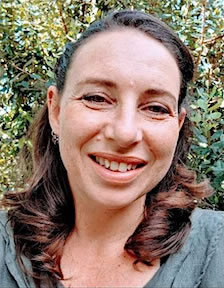 |
Educators, Let's Talk: ethics, public schooling & private sponsorshipEventbrite - Philosophy of Education Society of Australasia presents Educators, Let's Talk: ethics, public schooling & private sponsorship Wednesday, 7 December 2022 at NSW Teachers Federation, Surry Hills, NSW. |
We would be delighted if you would share this invitation widely. Places are limited and light refreshments will be available.
Registration
Registrations are now open for the PESA Conference 2022!
Registration options:
|
Early-bird (Until 31-Oct) |
Late Registration (Until 2-Dec) |
On-site
| |
|---|---|---|---|
| PESA Member | AU$600 | AU$800 | AU$1,000 |
| PESA Member Non-waged | AU$300 | AU$400 | AU$500 |
| Post-Grad/ECR | AU$100 | AU$200 | AU$300 |
| Non-Member | AU$800 | AU$1,000 | AU$1,200 |
| Virtual PESA Member | AU$300 | AU$300 | |
| Virtual PESA Member Non-waged | AU$150 | AU$150 | |
| Virtual Non-Member | AU$500 | AU$500 |
Postgraduate Session
We encourage all post-graduate students who are attending the PESA conference to also be involved with our post-graduate session. This is an opportunity to become a part of the PESA community by having your say on ways in which PESA can support you, including:
- providing you with opportunities to share where you are on your research journey,
- providing you with guidance and encouragement from experts in the field,
- helping you navigate the world of educational philosophy.
Please indicate your attendance at this session when enrolling for the PESA conference.
Call for Abstracts
We invite participants to submit abstracts for presentations and panels related to the following themes:
A. Looking back
- What changes have taken place in (i) curriculum; (ii) teaching methods; (iii) physical environment and teaching spaces?
- What have been the major changes in philosophy over the past 50 years and how has it impinged on philosophy of education?
- What changes have taken place in educational philosophy and theory?
- The rise of managerialism: What effect has this had?
- How has immigration changed education?
- What changes have occurred in indigenous education?
B. Looking at the now
- How do philosophers of education ground themselves within and without the Academy?
- In what way do philosophers of education negotiate and time and space in an increasingly demanding work sphere?
- What are some of the existential crises (if at all) that philosophers of education commonly face?
- What is the nature of ‘privilege’, and how do philosophers of education engage with it?
C. Looking forward
- What changes are likely to take place in (i) curriculum; (ii) teaching methods; (iii) physical environment and teaching spaces?
- What currents of thought will affect education in the next 50 years?
- Will IT dominate the classroom in the future – or will it be something else?
- Will artificial intelligence replace teachers? Lecturers?
- Academic Freedom: will it continue to diminish?
- What challenges does education face from multiculturalism and pluralism?
- What is a good alternative to neo-liberalism?
- What is the future of democracy?
Abstracts due by 1 September 2022
Conference Welcome 2022
Philosophy of Education in Australasia: Looking back and Looking Forward
For 50 years, the PESA conferences have celebrated innovation and diversity in philosophy of education scholarship. The conferences have generated opportunities for academic friendships, intellectual partnerships and collegial arguments. At our 50th PESA conference, we will remember and celebrate the society’s distinguished and exciting past while also reflecting on the present and future of philosophy of education in Australasia. This conference will provide both in-person and online participation.
The 50th conference will highlight the history of PESA since 1970 and its contributions to, and achievements within, the local and wider philosophical and educational community. Furthermore, the conference will offer opportunities to reflect on the currents of thought, approaches to philosophy of education, and changes to education that have occurred in the last 50 years. When the first PESA conference was held at the University of NSW in 1970, the place of philosophy of education in the Australian and New Zealand educational landscape was very different to what it is today.
This conference will also look forward by considering the place of philosophy in education today and in the future. It will ask: What is the role of philosophy of education in times of both uncertainty and innovation, where truths become fake, and knowledge is precarious and difficult? And, how can philosophy of education help us face contemporary political, ecological, health, humanitarian and other crises?
Through looking back and looking forward, this conference will consider the implications of past and future change for our wider communities. It will ask, what even is community, in an era of continuous crises and pandemics? Scholars, activists, educationalists and philosophers have called for sustainable and equitable acts of community, framed by kaleidoscopic shifts in how people interact and communicate. Community acts as a relational encounter of responsibility and working together. This relationality occurs despite—and perhaps because of— ontological, epistemological, and cultural differences. Community might be imagined in ways that separate us: limited by ideological boundaries drawn according to geography, membership or status. But community can also draw us together in scholarly endeavours. Looking back and looking forward challenges what is and what isn’t remembered in history, what is and what is not an archive, what is and what is not community. It challenges what a learned society should be and raises questions about what constitutes philosophy of education.
Keynote Speakers:
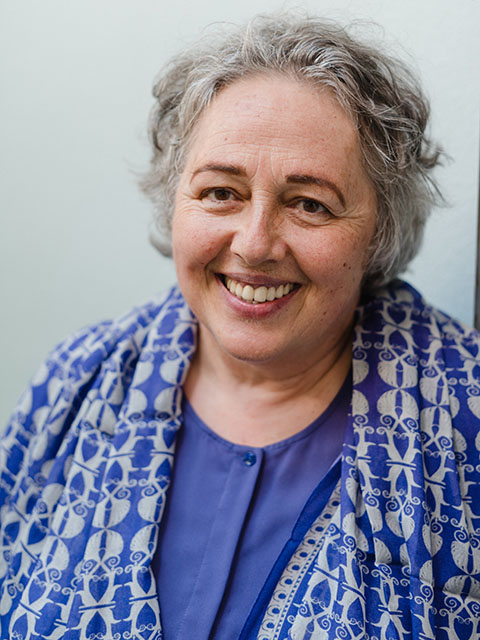 |
Rosi Braidotti, (Virtual Keynote) Rosi Braidotti is Distinguished University Professor Emerita at Utrecht University in the Netherlands. She holds Honorary Degreesfrom the Universities of Helsinki, 2007 and Linkoping, 2013. She is Fellow of the Australian Academy of the Humanities (FAHA), 2009; Member of the Academia Europaea (MAE), 2014; rand the ecipient Humboldt Research Award, 2022. Main publications: Nomadic Subjects (2011a), and Nomadic Theory.(2011b), Columbia University Press. The Posthuman, 2013, Posthuman Knowledge, 2019; Posthuman Feminism, 2021, Polity Press. www.rosibraidotti.com |
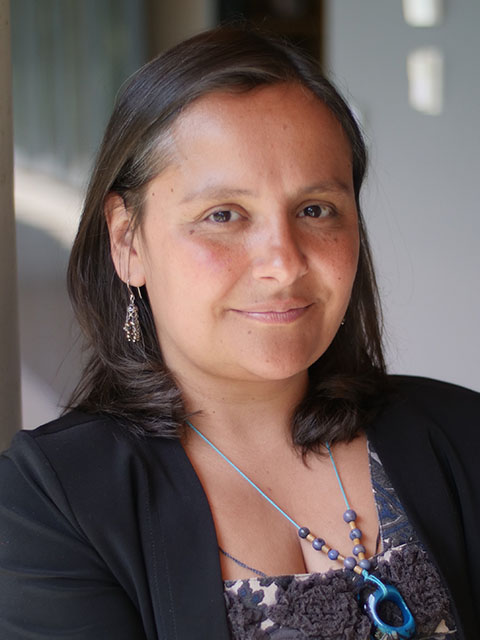 |
Vanessa Andreotti, (Virtual Keynote) Professor Vanessa Andreotti’s research examines historical and systemic patterns of reproduction of inequalities and how these limit or enable possibilities for collective existence and global change. Her publications in this field include analyses of political economies of knowledge production, discussions of the ethics of international development, and critical comparisons of ideals of globalism and internationalization in education and in global activism, with an emphasis on representations of and relationships with marginalized communities. She is one of the co-founders of the Gesturing Towards Decolonial Futures Arts/Research collective (decolonialfutures.net), whose work is the basis of her latest book "Hospicing Modernity: Facing humanity's wrongs and the implications for social activism". |
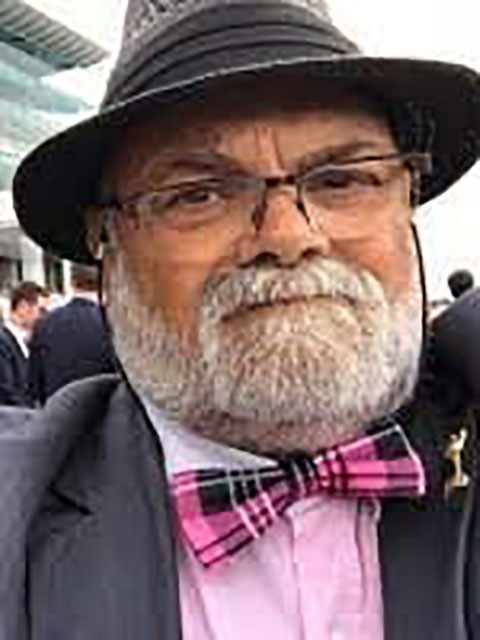 |
John Lester, John Lester is a strong Wonnarua man who has played a pivotal role in Aboriginal Education for over 30 years at the school, TAFE and university levels. One of the architects of the New South Wales Aboriginal Education Consultative Group, and a Life Member, he has been a leading policy innovator and pioneer of community empowerment. Career highlights include being first Executive Offices of the New South Wales AECG, a member of the National Aboriginal Education Committee, the first Aboriginal head of Aboriginal Units in the Department of Education and TAFE, the first Aboriginal TAFE principal, the inaugural Chair of Aboriginal Studies at the University of Newcastle and inaugural Director Aboriginal Education and Training in the New South Wales Department of Education and Training. |
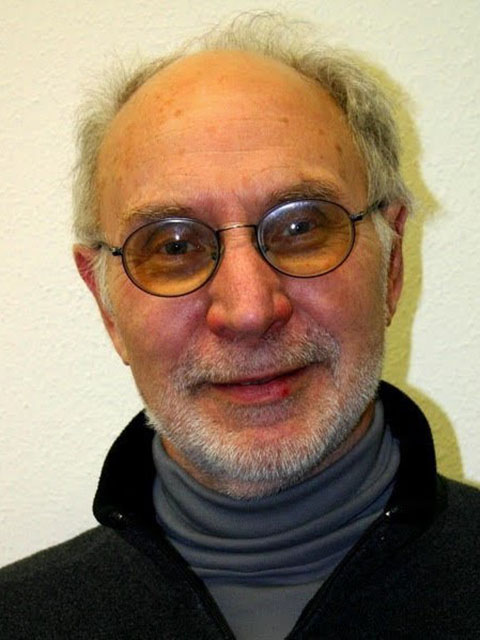 |
Thomas S. Popkewitz, Thomas S. Popkewitz is a Professor in the Department of Curriculum and Instruction, The University of Wisconsin-Madison, USA. His studies are concerned with the political and cultural politics of education knowledge and its comparative reason. These studies view schooling and research as practices creating kinds of people (e.g., the citizen, the learner, the child left behind) that distribute differences (the achievement gap) to exclude and abject. Recent studies focus the impracticality of present practical research for enacting its social commitments; examining historically current curriculum, teacher education, and international assessments as generating phantasmagrams that affectively differentiate potentialities about societies and people. |
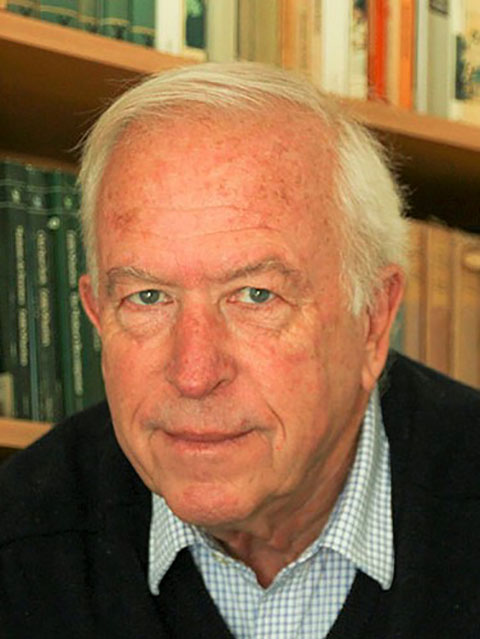 |
Simon Blackburn, (Virtual Keynote) Simon Blackburn is an English academic philosopher known for his work in metaethics, where he defends quasi-realism, and in the philosophy of language; more recently, he has gained a large general audience from his efforts to explain philosophy to a wider audience. His books include Spreading the Word (1984), Ruling Passions (1998), Think: A Compelling Introduction to Philosophy (1999), and The Oxford Dictionary of Philosophy (2016). |



